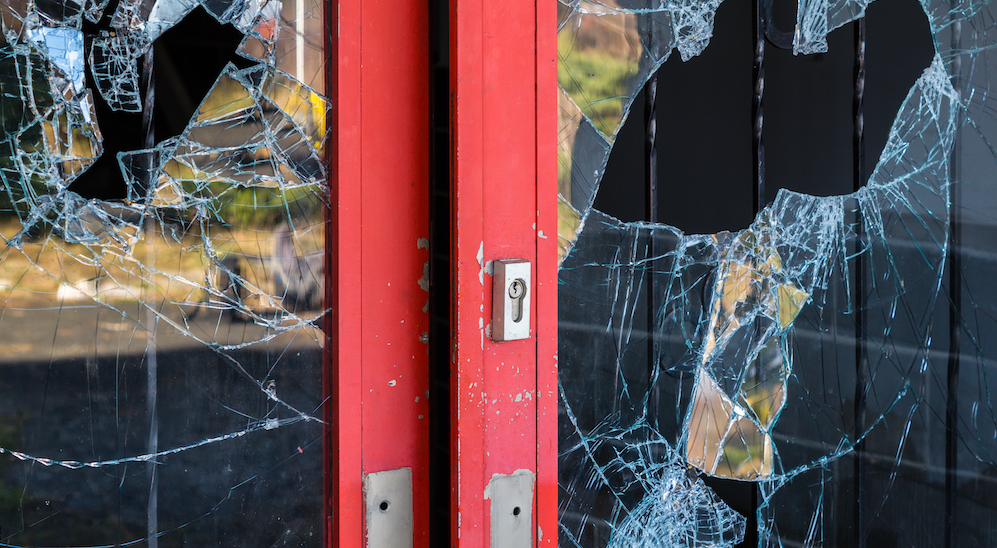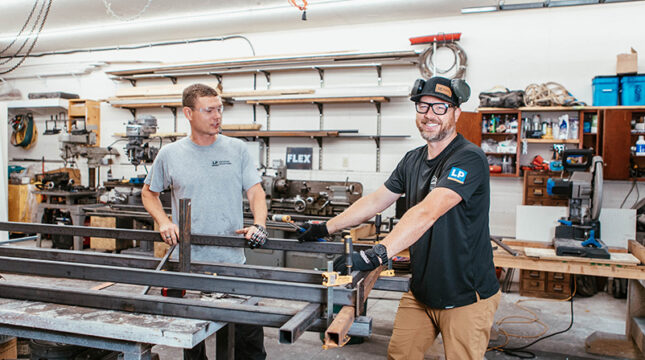This guide will cover:
What is hazard business insurance and what does it cover?
Hazard business insurance often goes by another more common name — commercial property insurance. It can help cover financial losses if your business property is damaged by water, fire, wind or other events included in your insurance policy.
The key to understanding how it applies to your business and what it covers is to look at the types of property your business owns or rents and what accidents or disasters could impact them.
Let’s start with your business property:
- Where does your business operate? Do you rent or own a space?
- Do you or your staff use expensive equipment?
- Do you sell products and maintain an inventory, including supplies?
Now consider any external acts that could cause damage to these assets. Many business hazard policies include coverage for losses due to:
- Fire
- Water damage (excluding flooding)
- Wind damage
- Snow, sleet, or ice
- Hail
- Theft
- Vandalism
There are exceptions and exclusions in most hazard policies, the most common being water damage caused by floods, earthquakes and losses caused by war.
It’s important to read your policy documents closely to make sure you are getting the coverage you need to protect you from the hazards that are most likely to interfere with your business.
Replacement value vs. actual cash value
Insurers typically have two methods of providing financial help when you file a hazard insurance claim — replacement value coverage or actual cash value coverage.
Replacement value coverage can help cover your business loss by providing the cash needed to replace your damaged property. For example, if water damage destroys your work computer, replacement coverage would help cover the cost of a new computer equal to the cost of that you paid.
Actual cash value coverage will reimburse you for the value of the property that was damaged. The actual value is often less than replacing damaged property due to the depreciation of assets.
SBA loan requirements for hazard insurance
The U.S. Small Business Administration (SBA) can be a helpful resource for small businesses looking to secure loans.
Those loans are issued through participating lenders and are guaranteed in part by the SBA. Small businesses can use the funding for a variety of purposes, including:
- Start-up costs
- New equipment
- Repairs
- Land, real estate or business mortgages
- Disaster relief
- Working capital
To obtain an SBA loan you must have the right small business insurance.
While the type of insurance required for an SBA loan depends on which loan you get, all require hazard insurance. This rule applies to loan programs, such as:
- SBA 7(a) loans: Provide small business owners with up to $5 million in loans from SBA-approved lenders.
- SBA 504 loans: Help promote economic development and new jobs in communities and mandate that a borrower creates one job for every $65,000 borrowed.
- Economic Injury Disaster Loan (EIDL): Help businesses survive and recover from disasters.
- SBA microloans: Help small businesses start up or expand with loans up to $50,000.
It is important to maintain your hazard business insurance policy throughout the life of an SBA loan while also meeting any other property requirements.
How much does hazard business insurance cost?
Like most types of insurance, there is not a one-size-fits-all hazard business plan.
How much you pay for this coverage can depend on multiple factors related to your business and the value of its property.
It’s a good idea to know the value of your business property. You might need to share that information when you get a quote for commercial property business insurance.
Learn more about commercial property insurance costs.
3 steps to buying business insurance
Historically, buying insurance has been daunting for small business owners. However, the SBA and organizations like NEXT are making it easier with fast, affordable and tailored online options.
Here are a few steps to consider when purchasing business insurance:
1. Understand your risks
Ask yourself questions about the types of accidents and natural disasters that could impact your business.
Consider your location and the weather typically experienced in your area along with foot traffic, vehicle traffic and crime rates.
What type of risks are you exposed to in your day-to-day operations? Do you rely on expensive equipment or inventory to do your job? Do people regularly visit your business space?
All of these components will help you create a clear picture of your hazard risk.
2. Shop around
Not all insurance programs are built the same. Compare insurance coverage, rates, terms and benefits to find the coverage that works best for your needs.
Check out insurance provider reviews and customer support to see if it’s a company that matches your expectations for service.
3. Update your coverage as your business changes
Your business requirements change over time, whether caused by growth or external factors outside of our control.
If your business operations, staffing or assets change, you might need to update your business insurance coverage.









